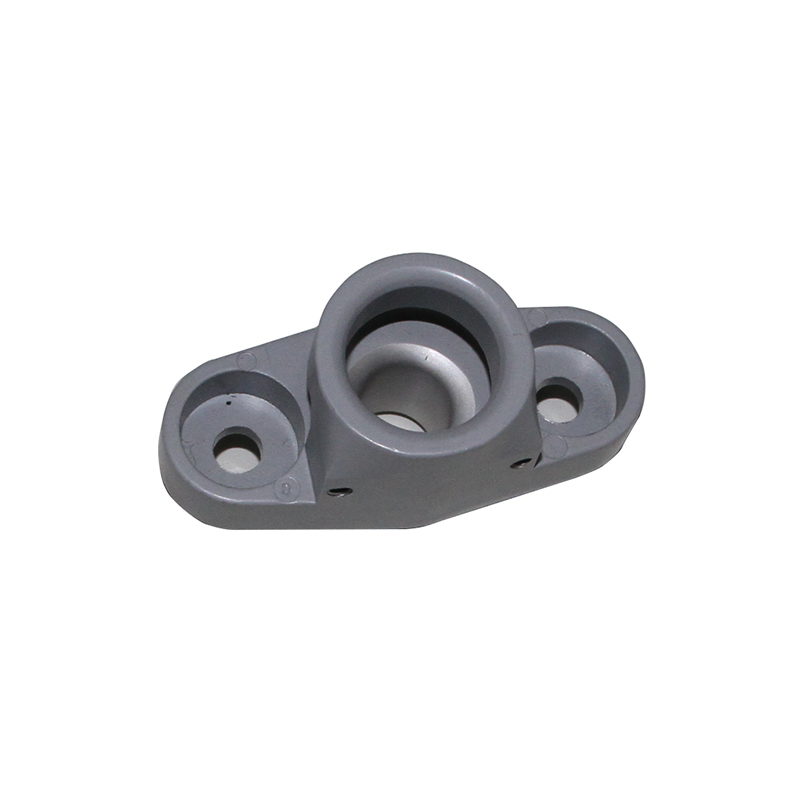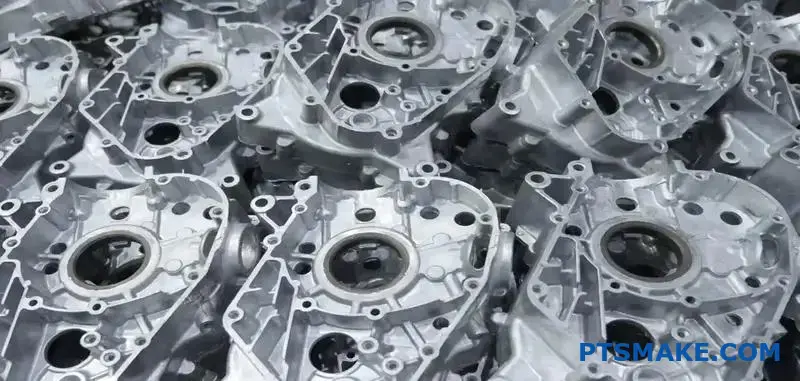The science behind Precision aluminum casting for industrial applications
The Duty of Light Weight Aluminum Foundries in Progressing Lightweight Production Solutions
Aluminum factories considerably add to the advancement of lightweight production remedies. Their ingenious spreading modern technologies generate high-strength, light-weight components essential for sectors such as automobile and aerospace. This advancement not just enhances item efficiency yet additionally promotes sustainability via the usage of recycled materials. As these foundries adapt to emerging practices and innovations, they lead the way for future growths in making effectiveness and ecological obligation. What exists in advance in this transformative journey?
The Benefits of Lightweight Materials in Production
As markets progressively look for effectiveness and sustainability, the fostering of lightweight products in production has become a crucial technique - Aluminum Foundry. These products, particularly aluminum and composites, provide numerous advantages that enhance manufacturing procedures and product efficiency. Mainly, their reduced weight adds to lower power intake throughout transport and operation, resulting in considerable expense savings
Moreover, light-weight products help with the style of more facility geometries, permitting higher development in item growth. This versatility commonly causes enhanced functionality and performance, providing to the evolving needs of contemporary customers.
In addition, making use of lightweight materials can improve the durability of products because of their resistance to corrosion and tiredness. This sturdiness not only minimizes upkeep prices but likewise supports sustainability efforts, as longer-lasting products add to less waste. To sum up, the benefits of light-weight materials are pivotal in driving efficiency, innovation, and ecological obligation in manufacturing.
Technologies in Aluminum Casting Technologies
Recent improvements in light weight aluminum spreading innovations are revolutionizing the manufacturing landscape, specifically in the manufacturing of lightweight parts. Innovations such as high-pressure die spreading and vacuum pass away spreading have substantially improved the precision and surface area finish of light weight aluminum parts - Precision aluminum casting. These methods enable the development of complicated geometries while reducing product waste and enhancing mechanical residential or commercial properties

Additionally, the application of real-time tracking systems guarantees quality assurance throughout the casting process, resulting in even more consistent item end results. Jointly, these developments not only boost the efficiency of light weight aluminum parts yet likewise support the sector's shift in the direction of even more sustainable production methods.
Applications of Light Weight Aluminum Components in Various Industries
While light weight aluminum elements have actually long been utilized in numerous sectors, their adaptability and lightweight residential or commercial properties remain to drive cutting-edge applications throughout markets such as vehicle, aerospace, and building. In the automobile market, aluminum is progressively used for engine blocks, wheels, and body panels, boosting fuel effectiveness and performance. Aerospace makers utilize light weight aluminum for aircraft structures and components, taking advantage of its strength-to-weight proportion to boost gas economy and payload capability.
In the building field, aluminum is favored for home window frames, roof covering, and structural elements, providing resilience and resistance to corrosion while decreasing overall structure weight. Additionally, the electrical and electronics industries gain from aluminum's conductivity and light-weight nature, using it in circuitry, enclosures, and warm sinks. These varied applications highlight the essential function of aluminum components, which not only satisfy market needs however additionally add to improvements in item style and functionality throughout multiple areas.
Sustainability and Energy Performance in Light Weight Aluminum Foundries
The light weight aluminum foundry sector plays an important role in advertising sustainability and power efficiency, particularly as demand for light-weight elements proceeds to expand throughout numerous fields. Shops are progressively adopting eco-friendly techniques, such as using recycled light weight aluminum, which significantly reduces energy usage and wikipedia reference greenhouse gas exhausts contrasted to main light weight aluminum manufacturing.
Furthermore, advancements in casting modern technologies enhance power efficiency by enhancing the melting procedures and reducing waste. Techniques like die casting and financial investment casting enable accurate product use, reducing excess and scrap.
Furthermore, numerous shops are purchasing renewable resource resources to power procedures, additionally lowering their carbon impact. Carrying this contact form out energy management systems makes it possible for foundries to enhance and check power use, ensuring they operate at peak performance.

Future Patterns in Lightweight Manufacturing Solutions
Just how will emerging innovations form the future of light-weight manufacturing options? Technologies such as advanced materials, automation, and additive production are set to redefine manufacturing processes. The combination of wise manufacturing technologies, including the Net of Points (IoT) and man-made knowledge (AI), will certainly allow real-time monitoring and optimization, boosting effectiveness and minimizing waste.

As sustainability remains to be an extremely important concern, lightweight solutions will increasingly focus on recycling and reusing materials, lining recommended you read up with circular economy concepts. This evolution in lightweight production will not just enhance product performance however additionally add to ecological objectives, ensuring that the industry remains affordable in a swiftly altering market landscape.
Frequently Asked Questions
How Do Aluminum Foundries Ensure Quality Assurance in Manufacturing?
Aluminum shops guarantee high quality control in production via extensive testing, standardized treatments, and constant surveillance - Aluminum Foundry. They apply proficient employees and sophisticated technologies to preserve consistency, lower problems, and meet sector criteria throughout the manufacturing process
What Are the Main Challenges Dealt With by Aluminum Foundries?
Light weight aluminum foundries encounter challenges such as fluctuating raw material prices, preserving manufacturing efficiency, ensuring constant top quality, adapting to technical improvements, and conference ecological policies, every one of which impact their general functional efficiency and competition in the marketplace.
Just How Does Light Weight Aluminum Recycling Impact Factory Operations?
Aluminum reusing substantially enhances shop operations by minimizing resources costs, lessening energy intake, and reducing environmental effect. This lasting practice makes it possible for shops to boost effectiveness while fulfilling increasing demand for light-weight, high-performance light weight aluminum products.
What Skills Are Needed for Workers in Light Weight Aluminum Foundries?
Workers in light weight aluminum factories need abilities in metallurgy, machining, quality assurance, and safety methods. Effectiveness in running machinery, comprehending alloy residential or commercial properties, and analytic are additionally necessary for reliable manufacturing and maintaining high safety standards.
How Do Aluminum Foundries Deal With Waste Management?
Aluminum shops take care of waste via reusing scrap metal, making use of effective waste partition methods, and sticking to environmental guidelines. They execute sustainable techniques to decrease garbage dump contributions, ensuring that harmful products are gotten rid of responsibly.
Light weight aluminum foundries significantly add to the development of lightweight production services. Recent innovations in light weight aluminum spreading innovations are transforming the production landscape, specifically in the manufacturing of lightweight components. While light weight aluminum components have actually long been used in various sectors, their adaptability and lightweight buildings proceed to drive cutting-edge applications across sectors such as vehicle, aerospace, and building and construction. Additionally, the electric and electronics sectors profit from aluminum's conductivity and light-weight nature, utilizing it in wiring, enclosures, and warm sinks. The light weight aluminum shop industry plays a crucial function in advertising sustainability and energy efficiency, particularly as need for lightweight elements continues to grow throughout various fields.